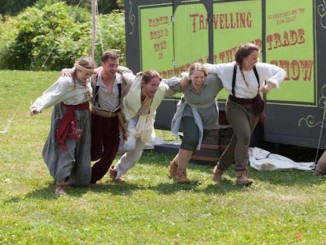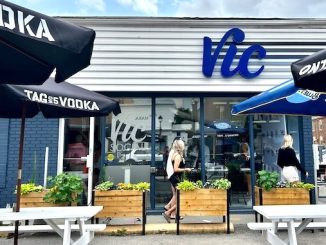Prince Edward County, or “The County” as locals have been calling it for years, has been growing with Torontonian transplants and visitors. Areas like Wellington, Bloomfield, and Picton have been naturally attracting city folks who yearn for a simpler life away from the hustle and bustle, and traffic woes of daily life.
It’s not Muskoka, sorry, no. That’s a different vibe. The County has been making its own mark and the people who have moved from Toronto to the area seem more chill. The Main Street in Picton is still one very walkable strip. The shops are still independently owned and quaint. The coffee shops are fantastic. Long-time locals including the Indigenous community are really wonderful (take the time to hear their stories). And yes, the Slickers ice cream shop is worth the drive alone. Of course, the incredible food and wine scene including Alberto Ponzo (The Royal Hotel), Stuart Cameron (Bocado), and the winemakers are big draws too.
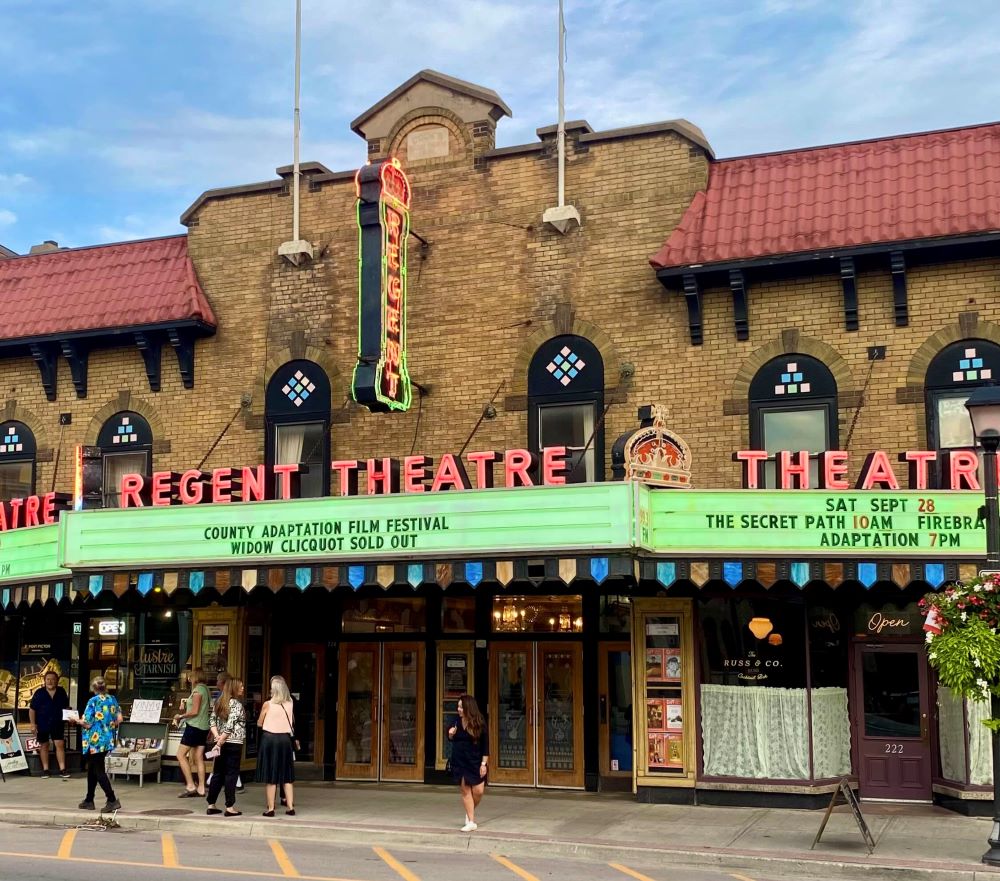
What’s been growing in the area is the vibrant arts scene and it’s already getting noticed. The County Adaptation Film Festival (CAFF) launched this past September opened the area to sold-out events and screenings. Pretty amazing for its inaugural year! From what we’ve seen, it’s investing in a community that is rich in arts and culture. They also invite conversations that support growth while respecting history.
Alexandra Seay, CAFF Festival Director and The Regent Theatre (Picton) Artistic Director is one of those Toronto via Halifax transplant to the area who is very much involved in the arts community in The County and explained the vision of this small but mighty film festival. We had a chance to chat with her to learn more…
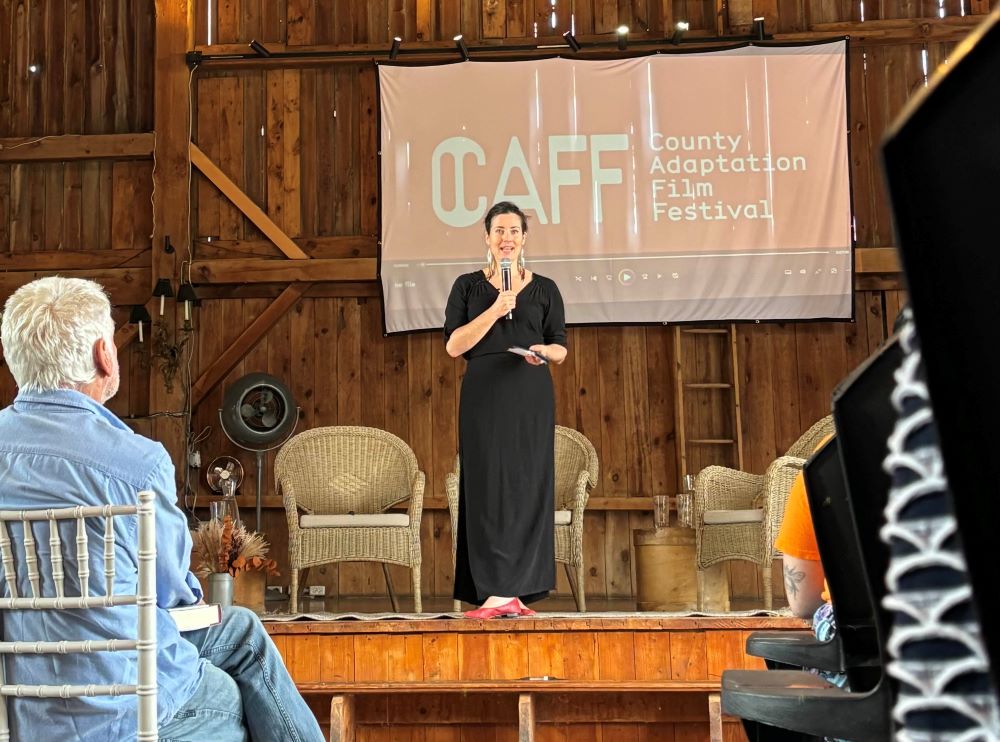
What was the vision for creating CAFF?
Alexandra: We have a very strong arts community in Prince Edward County. We also have an extremely strong film community out here too, and that is one of the reasons that a film festival made a lot of sense here. Because there are a lot of film and film-adjacent people, it was a natural fit. They are either currently working in the industry, adjacent to, or even retired. This was an ideal opportunity to bring them together. It was a bit of a hive mind but also created an excuse for them to get together. I say hive mind in terms of “So we need to get in touch with this person” and “Do you have contact information for…?” It was partly creating opportunities for them to get together and socialize in places that aren’t TIFF that don’t feel like work. Also, the fact that it takes place in your backyard, was part of what we had in our mind when creating this festival.
Why an ‘adaptation’ theme film festival?
Alexandra: So, it started with The County. We knew that a film festival in The County was a natural fit. But, we also felt there had to be a niche because there’s no festival here without a good reason. We also felt the reason needed to be bigger than this theatre, and it needed to be bigger than Picton. We also felt it needed to engage the entire community. So, we wanted to find something that provided an opportunity for our guests to get across The County. We needed to shine a spotlight on The County as a whole because it is bigger than Picton, Wellington and Bloomfield. And so the goal was really to showcase it all. And showcasing its landscape also naturally meant highlighting its people, businesses, hotels, and wineries. We wanted something that we could all work together on, and to showcase ourselves to the world. This theme would allow us to do that.
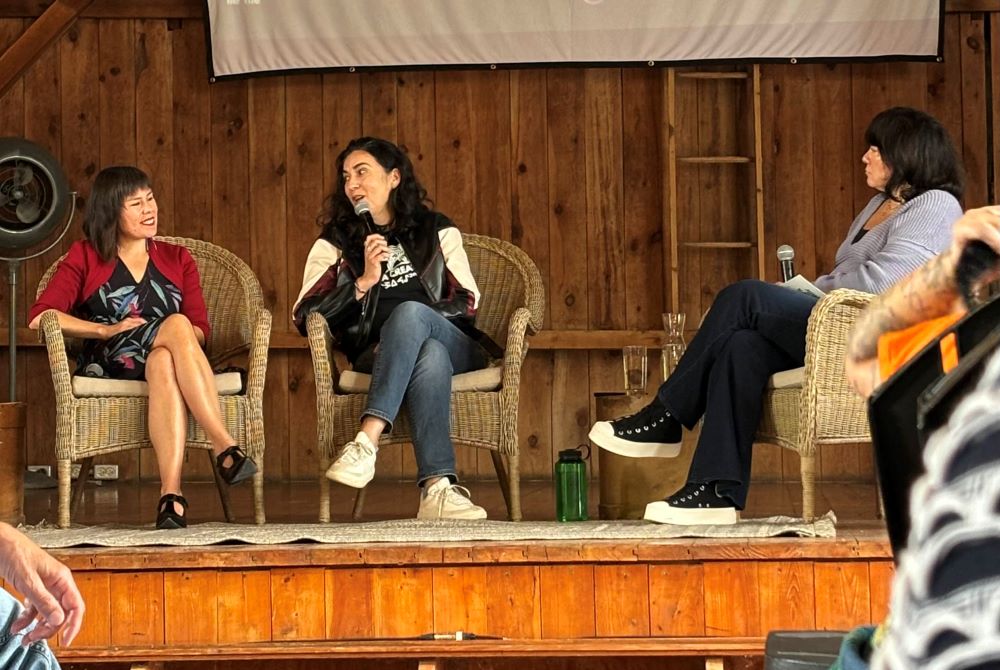
When we landed on the concept of an ‘adaptation’ film festival, it felt like the perfect way to bring artists together. We built it around artists and focused the festival’s lens on the writer and the screenwriter because they’re often overlooked in other festivals. That also gave us a different angle from some of the other festivals, of which there are many in Ontario! But we also wanted to invite conversation, and it’s the conversation that allows us to get beyond the theatre, physically, metaphorically and literally. So, for example, the conversations work really well in places like Clausson Chase, The Eddy and Base 31 for next year. Conversation allows us to get outside the theatre and it can be magical!
Yes, we experienced it in the Widow Clicquot post-screening Q&A with author, Tilar J Mazzeo, and screenwriter, Erin Dignam! That was fascinating to learn about the process from book to screen! They were very candid!
Alexandra: I didn’t know the conversation was going to be that candid! But I was certainly hopeful, and it was the intent of the whole festival to have artists in conversation with each other. I’m really grateful but the other reason for the theme of adaptation is because it gives us a really long programming runway. We can now do VR animation, kids movies, and adult films. This year “personal histories”, was the sub-theme that emerged, and we can always find those themes. But then we still have that unifying, overarching theme, yeah, the use of the word, but, you know, in and it, it, it’s a different angle. It’s a talking point, certainly the number of conversations I’ve had about it, so what’s an adaptation? You mean a book? Not necessarily.
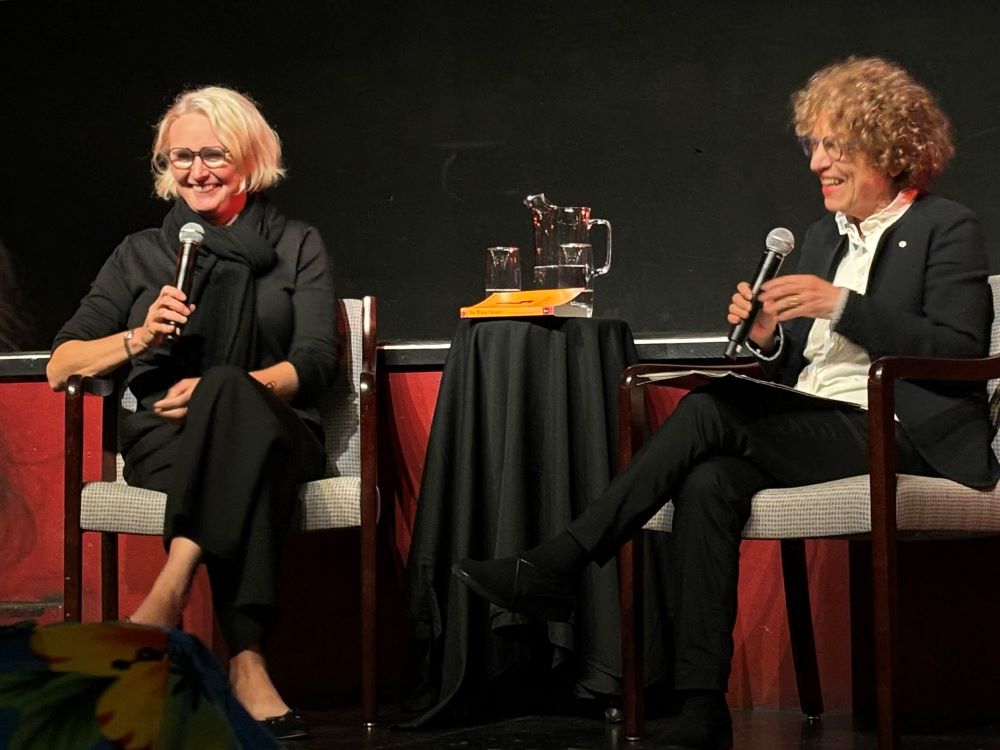
Often the arts scene can be intimidating or too “artsy” to many but CAFF felt more inclusive for everyone. There was definitely depth and breadth appeal for an audience who enjoy film but at the same time, it also opened doors to learn about the process of taking pages to screen. The CAFF also honoured Indigenous storytellers and local history. It felt grounded, in so many ways making it very much about The County. What are your thoughts?
Alexandra: I certainly hope so because that was the goal. In fact, the word ‘grounded’ is one of the words that actually was a focus in our brand creation, so it’s amazing you mentioned that! We wanted to create something that was intimate, to encourage conversation and dynamic to engage people. That was grounded. And by grounded, we also mean terroir, but we also meant rooted in The County as well as the people who call this place home.
The Opening Night film, Widow Cliquot, was selected to highlight the women in the wine industry and women in the vineyards. It was an obvious tie-in for us.
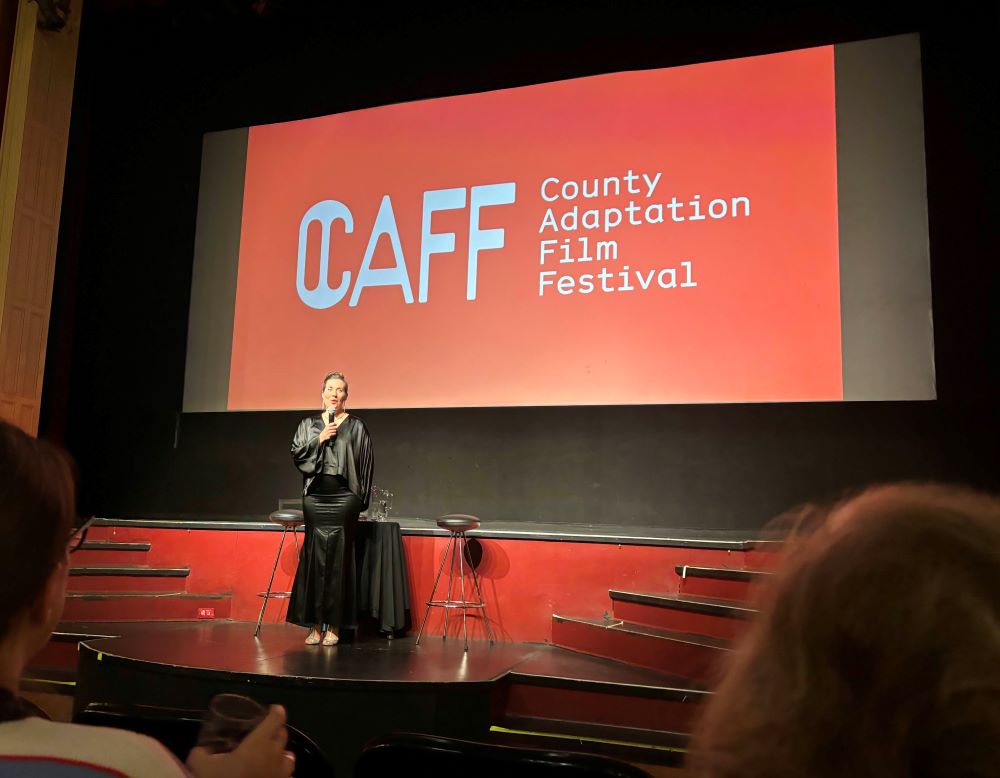
What was the process in selecting the films for this festival and having the various artists involved?
Alexandra: It was a matrix between the availability of titles and the availability of artists. We prioritize the artist in the process. We had a list of titles, then we went through the artists to find who we can get and then build from there. So really, truly, the artists came first, and specifically the screenwriters, are the centre of our festival. In some cases, the screenwriter was also the author of the book, which is an interesting sub theme this year at CAFF. For example, Mark Sakamoto and Tanya Talaga were both heavily involved.
Yes, thank you, Alexandra! Definitely a highlight to hear their candid talks. It was truly incredible to hear them speak about their experience in working from book to screen. Mark Sakamoto is literally walking us in the thick of the process now which was quite fascinating! It’s a pretty unique perspective for both book and film lovers. We felt like we hit a gold mine of insider stories!
Thank you to Alexandra Seay, The CAFF, for inviting us to experience this weekend long event in The County. We love visiting and learning each time we visit!


